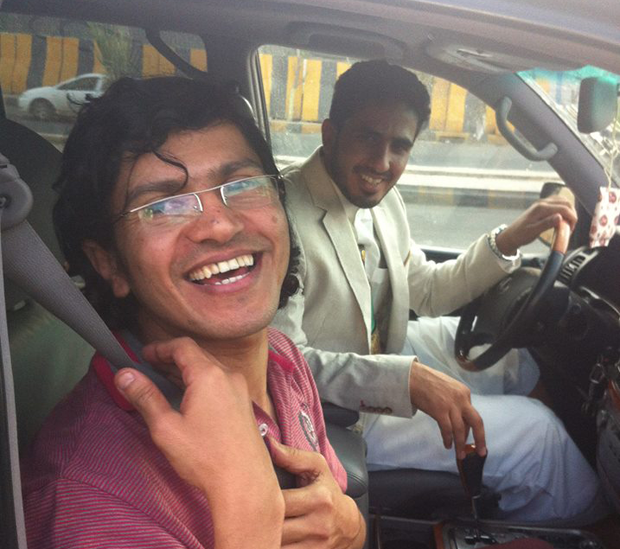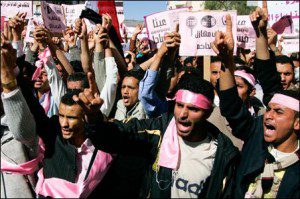Index relies entirely on the support of donors and readers to do its work.
Help us keep amplifying censored voices today.
Much of Index on Censorship’s global work involves allowing censored journalists an outlet to publish articles which may be unpublished in their home countries. This reading list, focusing on journalism, looks at issues surrounding freedom of expression and press freedom. It includes articles from Professor Emily Bell on the tools moving journalism forward and Professor Richard Sambrook’s reflection on the murders of journalists around the world that go unnoticed.
Students and academics can browse the Index magazine archive in thousands of university libraries via Sage Journals.
Journalism and censorship articles
Explosion of independent journalism by Stefan Bratkowski
Stefan Bratkowski, April 1987; vol. 16, 4: pp. 17-18
A message from Warsaw to the London censorship conference from a dissident
Back to the future by Iona Craig
Iona Craig, September 2014; vol. 43 , 3: pp. 8-12
Award-winning foreign correspondent Iona Craig discusses the growing need for journalist in war zones to go back to old ways of ignoring surveillance
The spirit of journalism by Ocak Isik Yurtcu
Ocak Isik Yurtcu, March 1997; vol. 26, 2: pp. 99-103
An imprisoned Turkish journalist, serving 15 years for anti-terror charges, discusses his experiences
Generation Why by Ian Hargreaves
In Index’s special report on the future of journalism, Ian Hargreaves considers whether the next generation of journalists will work with the public to hold the powerful to account
Users + Tools = Journalism by Emily Bell
Emily Bell, November 2007; vol. 36, 4: pp. 100-104
The Guardian’s Emily Bell on how technology is shaping the future of news and what editors need to do to adapt
Will Gore, September 2014; vol. 43, 3: pp. 51-54
Another one from the special report on journalism, The Independent’s Will Gore looks at journalistic innovation
Ahlam Mohsen, Katharina Frick, Luca Rovinalti, Athandiwe Saba, Bhanuj Kappal, September 2014; vol. 43, 3: pp. 18-19
Five young journalists, from Yemen, South Africa, Germany, India and the Czech Republic, share their hopes for the profession
In quest of journalism by Jay Rosen
Jay Rosen, May 1997; vol. 26, 3: pp. 81-89
Michael Foley interviews New York University’s professor of journalism, Jay Rosen
Attack on ambition by Dina Meza
Dina Meza, September 2014; vol. 43, 3: pp. 30-33
Human rights campaigner and Index on Censorship Freedom of Expression Award’s nominee Dina Meza talks about the situation in Honduras where young journalists are entering a profession rife with corruption and fear
Journalists are dying every day by Richard Sambrook
Richard Sambrook, March 2015; vol. 44, 1: pp. 101-102
Professor Richard Sambrook delivers a morbid account of how the deaths of journalists around the world are going unnoticed
The reading list for journalism and censorship can be found here

A picture of the journalist, smiling broadly as he left the capital’s Political Security Prison, quickly circulated online following his release, having served half of his five-year prison sentence handed down in January 2011.
Shaye’s reprieve was hailed late on Tuesday “as a victory for common values of media freedom, justice and human rights,” in a statement by Yemeni press freedom organisation, Freedom Foundation, which has campaigned for his release.
The first indications of a possible discharge came in May – after more than 2.5 years in solitary confinement – an order was made by President Hadi for Shaye to be released “soon”. But, it was not the first time a Yemeni president had attempted to free him. Days after being sentenced in 2011, Ali Abdullah Saleh – Yemen’s president of 33 years – issued a pardon for his release. However, due to direct intervention by Barak Obama, Shaye remained in jail. As a result his family were very sceptical that this most recent pledge would be fulfilled.
Ten days after reports of Hadi’s order, a note from Shaye was smuggled out of the prison.
“The only person responsible for kidnapping and detaining me is Obama,” read the letter. “I’m eagerly longing to see my mother and family. Still, I have not forgotten my loyal colleagues and friends. Everything you do for my sake makes my solitary confinement tolerable.”
The holy-month of Ramadan is used annually as a period of amnesty and this week local reports suggested Shaye might be released on the 17th day [July 26] of the religious month of daylight fasting. But similarly, the US has previously stepped in to prevent such pardons in Yemen. In 2004, the release of 28 prisoners during Ramadan was blocked because of ‘objections by the US government.’
Shaye’s eventual release appears to have come as the Freedom Foundation suggested “despite all the American pressures on him [President Hadi] to keep Shaye in prison.” In a recent meeting with local journalists US Ambassador to Yemen, Gerald Feierstein reinforced the US government’s position saying: “Shaye should be kept in prison.”
Shaye was arrested in August 2010 following his outspoken criticism of the Yemeni government and his reporting of a cruise missile attack on a suspected al-Qaeda training camp in al-Majala, southern Yemen, in December 2009 that left 55 dead, including 21 children. After visiting the bomb site and collecting evidence, Shaye reported that the killings were caused by cluster munitions and had been carried out by the United States, not the Yemeni government who claimed responsibility at the time.
In 2010 Shaye was found guilty of assisting al-Qaeda by the Special Criminal Court for Security Affairs, a court seen as illegal by international human rights organisations. He refused to recognise the legitimacy of proceedings, turning down legal representation he was given only a few minutes to defend himself. Shaye was later sentenced in January 2011 to five years in prison for his links to al-Qaeda – Shaye had specialised in reporting on the Yemeni off-shoot Al-Qaeda in the Arabian Peninsula. His reporting on the al-Majalah bombing was later – after the conclusion of his trial – corroborated by leaked US diplomatic cables.
The conditions of his release as part of his original sentence will be upheld, according to the state news agency [also Shaye’s former employer] Saba News: He will not be allowed to leave the capital, Sana’a for two years.
 The pardoned journalist has been imprisoned for one year at the request of the US administration. Iona Craig reports
The pardoned journalist has been imprisoned for one year at the request of the US administration. Iona Craig reports
(more…)
 After a year of political unrest following the Arab Spring, Iona Craig reports on the current situation in Yemen.
After a year of political unrest following the Arab Spring, Iona Craig reports on the current situation in Yemen.
(more…)